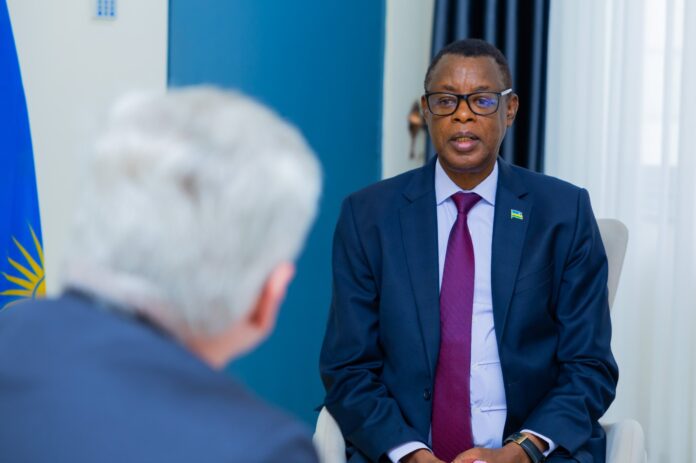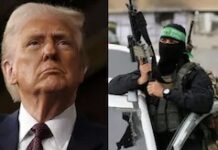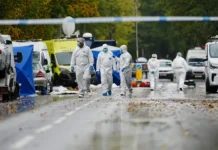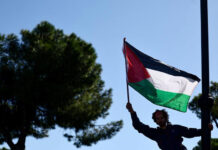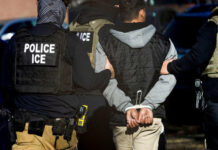Rwanda has come out swinging against the United States, branding the latest sanctions on its Minister of State for Regional Cooperation, James Kabarebe, as “unjustified and unfounded”.
The designation by the U.S. Treasury’s Office of Foreign Assets Control (OFAC), announced today, accuses Kabarebe of fueling the bloody conflict in eastern Democratic Republic of Congo (DRC) through Rwanda’s alleged backing of the M23 rebel group.
But Rwanda isn’t taking it lying down—its government is calling the move a hypocritical overreach that undermines African-led peace efforts and shields the real culprits in the region’s chaos.
In a sharply worded release from the Ministry of Foreign Affairs and International Cooperation, Rwanda didn’t just defend Kabarebe—it turned the tables, pointing fingers at a laundry list of unsanctioned players it claims are stoking the fire along its western border.
The Congolese armed forces (FARDC), the Southern African Development Community’s SAMIDRC troops, Burundian soldiers, the FDLR “genocidal militia,” and even “European mercenaries” all got a mention as Rwanda accused the international community of “coddling” these groups while slapping punitive measures on Kigali.
“If sanctions could resolve conflict in eastern DRC, we would have had peace decades ago,” the statement sneered, daring the U.S. to explain why its blacklist doesn’t include what Rwanda calls the true instigators.
The timing couldn’t be more explosive. Just as African leaders from the East African Community (EAC) and SADC huddled at a joint summit—followed by the African Union’s own gathering—to hammer out a regional fix for the DRC crisis, the U.S. dropped its sanctions bomb.
Rwanda’s not mincing words: it sees this as “unwarranted external interference” that risks derailing a fragile, African-led mediation process it claims is the “only credible pathway” to peace. The message is clear—back off, America, and let Africa handle its own mess.
At the heart of Rwanda’s defiance is a visceral national security plea. “Rwanda’s only aim is a secure border and an irreversible end to the politics of armed ethnic extremism in our region,” the statement thundered, framing the DRC conflict as an existential threat to Rwandans still haunted by the 1994 genocide.
The FDLR, a Hutu militia with roots in that slaughter, remains Rwanda’s boogeyman, and Kigali insists Congo’s government is in bed with them—a charge Kinshasa denies.
Toss in the 300 European mercenaries Rwanda says it recently waved through to Romania, and you’ve got a narrative that paints Congo as a chaotic aggressor and Rwanda as a misunderstood defender of its sovereignty.
The U.S., for its part, isn’t budging. OFAC’s move pins Kabarebe—a retired general with a decades-long military pedigree—as a linchpin in Rwanda’s alleged support for M23, a Tutsi-led rebel outfit that’s seized swaths of eastern DRC, including Goma and Bukavu, in recent months.
Washington says it’s about accountability for human rights abuses and destabilization, but Rwanda’s retort is a stinging one: why no sanctions on Congo’s FARDC or its allies, who’ve been accused of their own atrocities? The implication hangs heavy—maybe the U.S. is picking sides in a conflict it doesn’t fully grasp.









